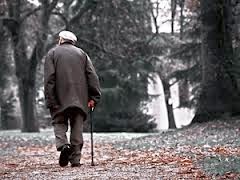“I feel ridiculous going into therapy because I can’t decide whether or not to get married,” Nina, a slender young woman with shiny dark hair and large brown eyes, begins. “I mean I’ve been in therapy before, lots of times. It’s been a lifesaver sometimes, but going into therapy because I can’t decide whether or not to marry Sam seems silly. Either I want to marry Sam or I don’t. I don’t know what makes it so hard to decide.”
“What does make it so hard to decide?”
“I guess because I don’t know if I love him. But is it even necessary that I love him? I’ve loved other guys and they all turned out like shit. I don’t know. I keep going round and around in my head.”
“Nina, I hear that you feel a lot of pressure to decide right now, but it would be helpful if you told me something about you, your background, why you’ve been in therapy before, maybe something about the shit guys.”
Nina sighs. “I knew I’d have to go through the whole thing again. It’s so tedious. Okay, here goes. When I was a kid, my life was pretty normal until I was six. Then my mother was hit by a car. She lived on a ventilator for a year or so until my Dad won the court battle with my Mom’s parents and had her disconnected. My Dad didn’t let me see my grandparents for quite a while, but then I got to see them and that was hard too because they talked such shit about my Dad. That’s when therapy was really helpful. Things got better after that until my Dad started dating and dating and dating. I guess he was trying to drown his sorrow in women, at least that’s what my therapist said. Fast forward, I now have my fourth step-mother except of course I don’t live at home any more so I don’t really care who he’s with. End of story.”
“That’s an overwhelming story, Nina, yet you told it like you were reading from a book, like it happened to someone else.”
“I just can’t feel about it anymore. I don’t want to feel about it anymore. I want it over.”
“But maybe it isn’t over.”
“What do you mean?”
“Well, that’s a tremendous amount of loss and trauma for anyone to go through, let alone a young child. You lost your Mom, your grandparents and your Dad.”
“My Dad’s not dead.”
“No, but it sounds as though once he started dating you felt as though you’d lost him.”
“Yep! But that was just me being jealous. That was another therapist’s opinion.”
“And what’s your opinion?”
“I don’t know. It felt too soon. It felt like he forgot about my Mom. It made me wonder if my grandparents weren’t right about him. It made me sad. I missed him. I missed them all,” Nina says, her voice breaking a bit.
“I’m sorry Nina.”
Her eyes fill with tears which she blinks back. “But what does this have to do with my not being able to decide whether or not to marry Sam?”
“First tell me whether the previous guys you loved were unfaithful to you or otherwise unavailable.”
She snorts. “You mean like married? Yeah, I had my share of those. And my share of womanizers too. So you think I have an Oedipal thing, right? You think I want my father just for me.”
“Is that what you think?”
“Maybe. I just don’t know any more.” Pause. “For sure Sam isn’t anything like my father. He’s kind and generous and faithful. I know he loves me. I just don’t know if I love him.” Pause. “So you’d say I have to give up on my Dad in order to allow a different kind of man into my life.”
I smile. “You’re certainly no stranger to therapy.”
She nods. “Too true.”
“But I wonder if, as you said, it’s only an ‘Oedipal thing.’ You’ve had so many early losses, Nina, losses that had to have a huge affect on your life. I wonder if you’ve walled yourself off from ever allowing yourself to be really close to anyone for fear that the pain of losing them would be too much. If you choose unavailable guys, they maintain the distance. If you choose a guy who is available, maybe that’s just too scary. What if you come to rely on him like you did your Mom or your Dad? What if he leaves or is in an accident? What if he dies? Maybe your six year old self doesn’t feel like she could cope with that.”
“But I’m not six.”
“The unconscious is timeless, Nina. We’re all whatever age we are today as well as six and ten and fifteen. That’s how we’re made.”
“But what do I do?”
“I’d say we have to go back so that you can feel the tremendous pain and loss and fear you felt as a child and help that child mourn and grow so that you can allow yourself to love and to know that however painful it might be you could again survive loss.”
“Sounds charming.” Pause. “When do we start?”





